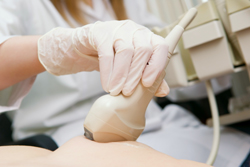Linking breast cancer to diet
Lifestyle practices are said to play an important role in the incidence of breast cancer especially at young ages. The EC-funded CASE-ONLY STUDY (C.O.S.) project focused on analysing dietary effects on breast cancer onset. The study that was carried out enrolled approximately 5,000 breast cancer patients, who were diagnosed before the age of 40. The study examined the interaction between the breast cancer susceptibility genes BRCA 1 and BRCA2 and dietary habits. It has long been known that mutations in these genes can increase the breast cancer risk in their carriers. Reducing this risk is a challenging task and for many it might include prophylactic bilateral mastectomy and oophorectomy. The study indicated that dietary habits can indeed play a role in reducing the risk associated with BRCA mutations. Increasing the intake of cruciferous vegetables such as broccoli, cabbage, cauliflower and Brussels sprouts is likely to prove beneficial. Similar preventive effects were attributed to the elimination of cow's milk from the diet.



